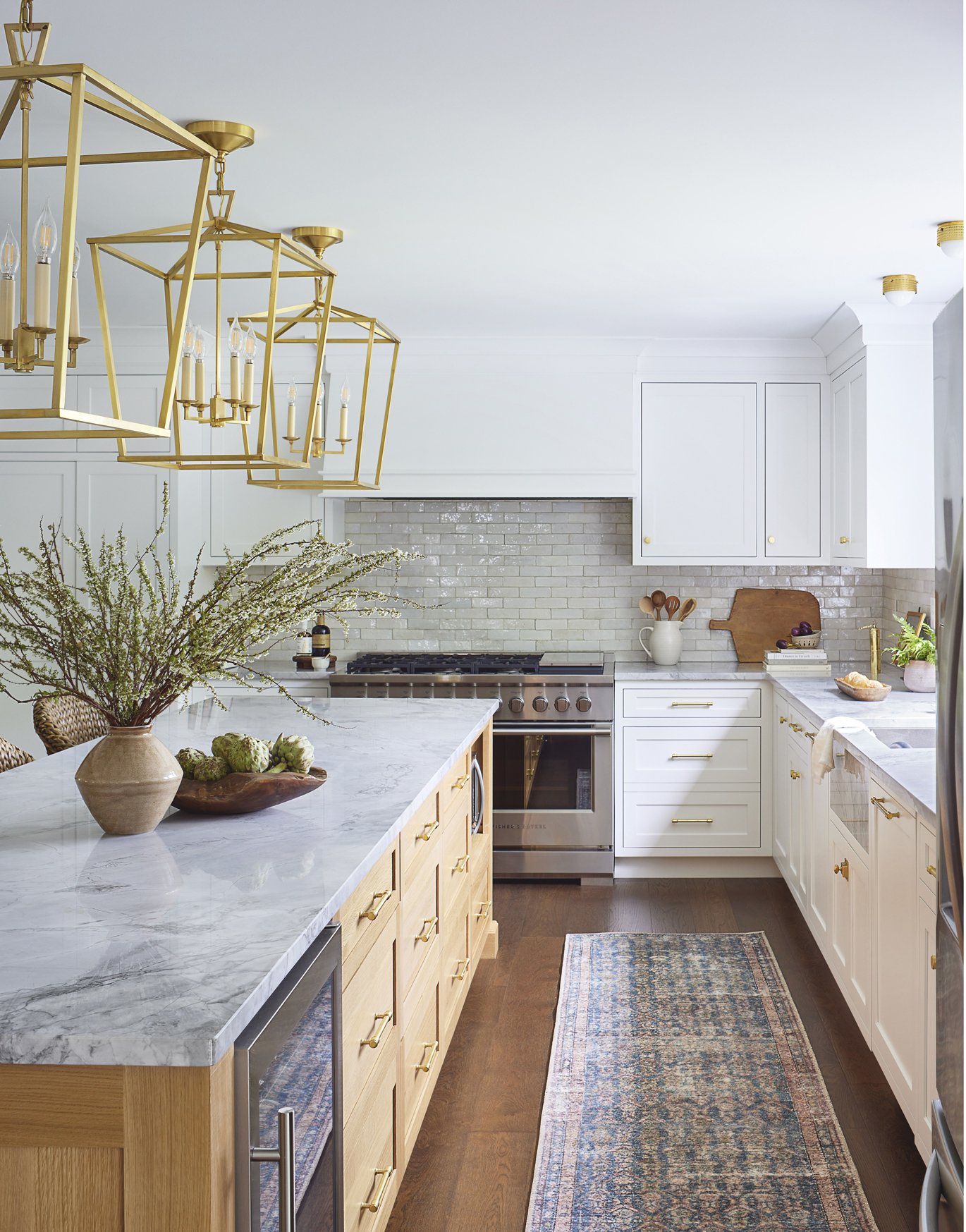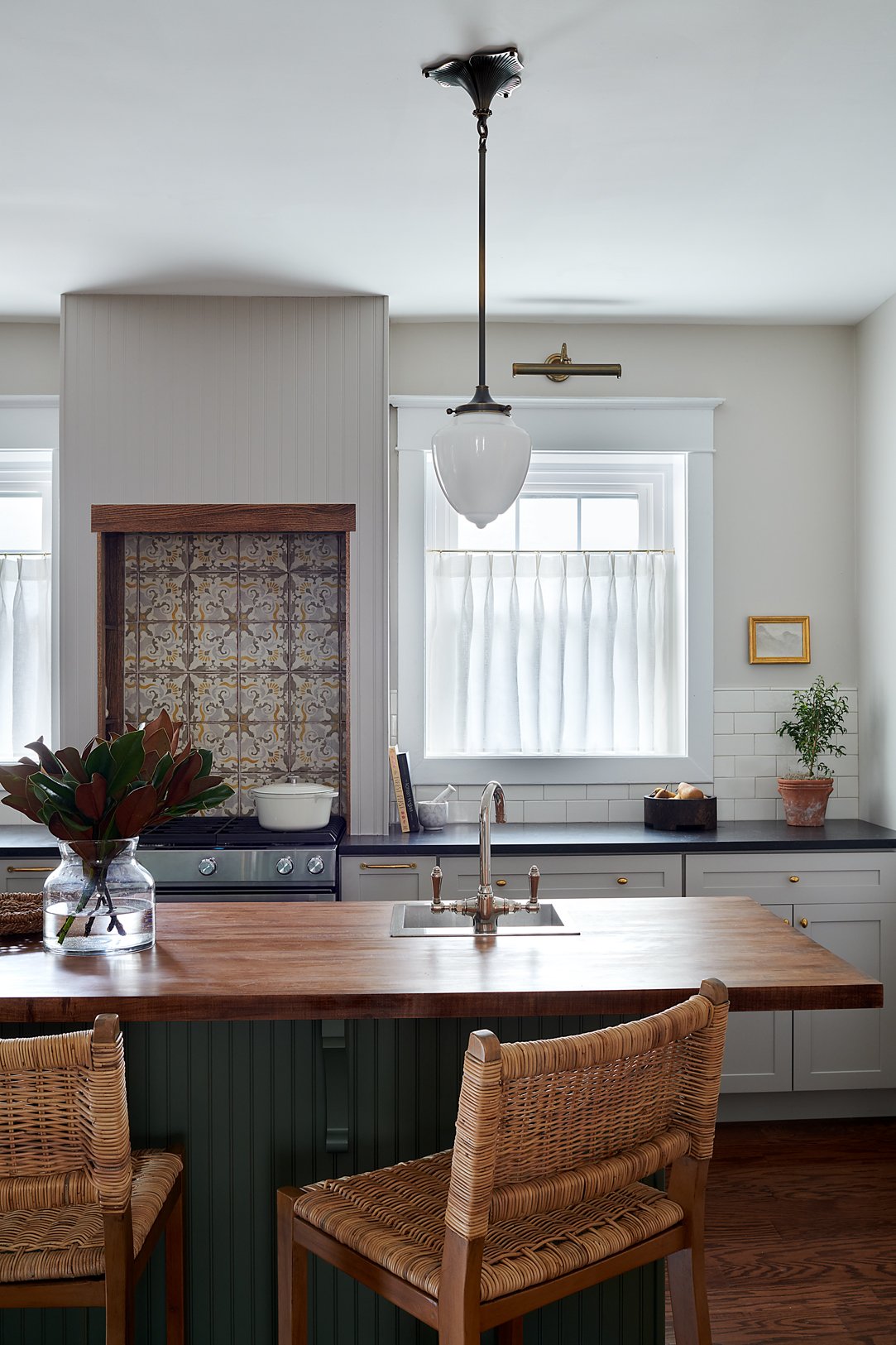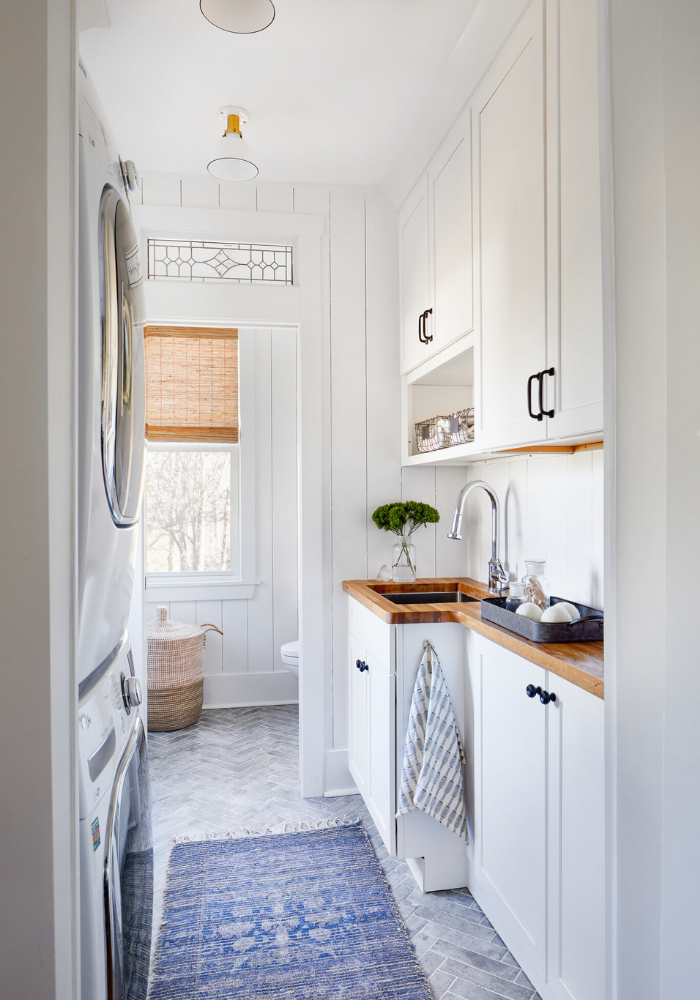Interior Designer or Not: How to Make the Right Renovation Decision
You’re ready to transform your house (with all its quirks) into a beautiful, functional home that embraces your family’s lifestyle. You know a renovation is on the horizon…but where should you start? Should you hire an interior designer first? The architect? The general contractor?
If you’re confused and uncertain, you’re not alone. Most people don’t know exactly where to start.
So, let’s break it down. Today I’m sharing:
Who is involved in a renovation?
When should you hire a designer?
What are the advantages of having a designer on your team?
How do you know if you’re ready?
What else should you know before starting a renovation?
Come take a look…
Who is involved in a renovation?
Chances are, you’ll need to hire some mix of the players listed below. It’s important that they all collaborate well together for a seamless process from start to finish.
Interior Designer: Your designer sets the tone for the aesthetic, creates the floorplan, and designates how the space will flow. We specify the right materials (for style, longevity, functionality), design custom cabinetry and interior architecture (like trim, paneling, etc.), select furnishings, and oversee installations. A designer can serve as a project manager too, overseeing all of the moving pieces and people that make the renovation come together.
Architect: An architect is more focused on the exterior and the physical structure of the home. They can provide renderings and drawings of the space and can assist with plans for major structural changes, such as additions or gutting large spaces. They may also obtain city permits and approvals. Depending on the scope of your project, you may or may not need this role.
Structural Engineer: This professional usually won’t stick around your project long. They are responsible for stepping in to inspect the project (or its plans) to ensure that the home will be structurally sound. You will need this team member when any major structural changes are being considered, such as the removal of load-bearing walls.
General Contractor/Builder: GCs bring the plans on paper to life. They are responsible for the physical building of the project and often have teams of contractors for each aspect of the home: plumbing, electrical, cabinetry, millwork, paint, etc.
When should you hire a designer?
I recommend hiring a designer on Day One of your renovation project. Nope, not when your team is starting construction — I mean the first day that you are even considering a renovation. Why?
Because we can help you avoid sooooo much confusion, wasted time, or misdirected budgeting. We can look at your ideas, your sense of style, and your lifestyle and very quickly share:
The best order of operations for efficiency
Which roles you’ll need to hire for your desired scope (and intros if you want them)
The general budget you’re looking at and whether it matches your desired investment
Creative ways to maximize space and functionality to optimize the budget
Which materials are right for your lifestyle and which aren’t
And so, so much more…
What are the advantages of hiring a designer first?
Renovating is a messy endeavor, but you gotta break some eggs to make an omelet, right? Successful designers know how to make that mess into magic. And when you plunge into a big project with lots of moving parts (and emotions involved!), you’ll want an experienced advocate by your side.
Here’s what we do for you:
Saves Time (We’re talking hundreds of hours…)
There are soooo many moving pieces, people, and decisions that go into a renovation. Depending on the renovation, we usually partner with a builder and architect and sometimes a structural engineer to manage the project, and this is a huge plus for our clients. No thousand phone calls needed or ducking out of work to meet with contractors. We also take the time upfront to get to know you so that we can make smart decisions on your behalf. We pride ourselves on managing challenges, sometimes without our clients even knowing they happened.
Reduces Stress & Fatigue
During the design process and project implementation phase, we are working on your behalf! We’ll create a cohesive design that elevates your lifestyle and we’ll make sure the project runs smoothly. Behind the scenes, challenges will arise, and we’ll be the first to tackle them. Often, the problems are solved without even crossing your path. Easy-breezy, right?
Financially Smart
We create floor plans and fine-tune the scope of your design before you engage with the contractor…and that helps you get more accurate bids for the project. Sometimes it’s also helpful to consider a “Plan A” and a “Plan B” that allows you to compare options and weigh the budget. Our process is also so steeped in catering to your lifestyle, longevity, and tastes that you won’t end up regretting your choices, making changes, or replacing items down the road.
Custom Designed & Complete
Think of design as the sum of all the parts, rather than the individual pieces. We do everything for a reason! All of our selections are intentional and all of the pieces are thoughtfully curated to go together. We spend hours and hours finding the perfect items for your project, from materials to fixtures to furnishings.
The end result? A design that feels completely unique to your family…and a home that is finally finished.
How do you know if you’re ready?
Working with a designer isn’t for everyone. Before you move full speed ahead, here’s how to know if you’re ready and will be able to make the most of the experience:
Do you know what you want?
You might not know exactly what you want, but you should have a general idea of your goals for the home. Waffling on decisions or changing your mind later can add unnecessary time and money to your project. While we will certainly help you with decision-making, having a foundation for your preferences will help you and us stay efficient!
Are you more concerned with doing it right than quickly?
It takes time to get from an initial idea to a well-executed, finished space. But it’s so worth it! While we never drag a project out unnecessarily, rushing any complex process will lead to mistakes. Are you willing to commit to our step-by-step process? Are you more interested in doing it right than doing it tomorrow? If so, a designer is right for you.
Are you willing to re-furnish? "
If you are renovating, it’s really important to factor in your furniture investment. Yes, we can incorporate some of your favorite existing pieces, but nothing falls flatter than a brand-new home filled with the same tired furniture and dated lighting you’ve been looking at for years. As a designer, I will help you allocate your investment to account for furnishings from the start. Trust me, it will make ALL the difference.
What else should you know before starting a renovation?
Last but not least — start early! We often book out months in advance, and it takes time to assemble a team and develop the design concept before construction even begins. If you’re looking to hire a designer for a remodeling project, it’s never too early to set up a meeting and get your ducks in a row.
Speaking of which… whether you’re interested in hiring a designer or just looking for some smart advice, I can help. Book a discovery call with me here to chat about your project and see if we’re the right fit.
‘Til next time,
Libby
Check out these posts if you want to read more about our tips that may help you along your renovation journey.
9 Things to Know Before Starting a Kitchen Renovation
5 Steps to Successfully Renovate Your Home






